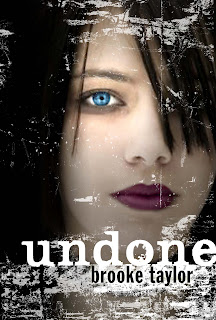STATUS: Busy Monday as I connect with my foreign rights person to debrief Bologna.
What’s playing on the iPod right now? LONESTAR by Norah Jones
Thank you all for the many varied responses to my blogs about Pitch Alternatives. I’m actually going to share these blog links with various conference organizers so this was not for naught.
So I can do so, I want to recap some of the options that I think will work most effectively.
The problem, for me anyway, in allowing non-ready writers to pitch unfinished projects is the expectation that is often in place before the pitch. I know that these writers actually still expect an agent to request the material—even if the work isn’t complete.
And I’m very serious about this. I’ve gotten shocked responses from pitchers when I’ve started the session with “Is your manuscript complete” and then when given a “no” reply, they were stunned that they couldn’t just send it a year later when it was ready.
Folks, I couldn’t make this stuff up so what I’m saying is that if we allow folks to just pitch at will, it puts too much expectation on the agent and then we feel like the bad guy by saying, no, you can’t send the partial you have; or, no, you can’t send it a year later when it’s finally finished.
This is what I’m trying to avoid. So here are my ideas. This is working off the assumption that the pitch appointments will be screened and only writers with finished projects will be allowed to “formally” pitch.
For all unfinished projects, here are some viable alternatives. These would all include a fee, above and beyond the conference fee, for the participant to attend. That way the conference is not sacrificing revenue for these alternate ideas.
1. A morning practice pitch session that is advertised as such. In other words, any writer with an unfinished project can pitch an agent or editor but they go in with the expectation that the agent/editor will not be asking for sample pages. This is solely for fun and practice. I suggest that the conference organizers ask the attending agents/editors if they are open to being faculty for this kind of session. I wouldn’t mind doing it and then the pressure is off me completely because the expectation is clear upfront to both parties participating.
2. A social event with an agent (or editor but I’m not going to retype that each time), limited to 6 participants and held at an off-site location (to avoid interruptions), that’s a roundtable discussion that allows writers to simply have sit-down Q&A with agent. This isn’t a practice pitch session per se but it might end up there if the agent directs it that way. Event to be held in a bar or restaurant so food and drinks are available. Expectation is that participants pay to attend and then also have to pay for their own food and everyone there pitches in to pay for the agent. (Trust me, we won’t eat or drink so much to make this cost prohibitive. Or we shouldn’t anyway!)
3. Coffee Klatch: Morning session in a classroom where participants pay to attend and the fee also includes coffee, tea, and pastries. Hey, I think events don’t work as well if food isn’t there. The conference can set the price appropriately for how much it would cost for the food/beverage service. Or, cheaper yet, the session moderator brings the bagels or donuts (but the session fee still pays for the bringing in of yummies). A similar idea could be done with a special lunch in smaller rooms with smaller tables that are more private (so you don’t get the overwhelming loudness). Participants can pay to have a special lunch with an agent. Limit the number to 5 or 6. Maybe have the event off-site at various restaurants so the Conference does not have to pay to reserve these rooms. Or, utilize the same rooms already reserved and have food brought in. That way the Conference can control cost and make sure the fee covers the expense.
4. Small roundtable query workshop and or opening pages—limited to 6 people. I’m not opposed to this but I just wanted to point out that it’s a lot of work on the agent’s part to prepare for this. At Rocky Mountain Fiction Writers, they do this on the Friday before the conference begins, I spend a good two hours easy on reading and commenting on the submissions so I’m prepared. I know you don’t realize it, but it’s asking a lot from agents. I have so very little free time as I easily work 10 or 13 hour days on average just to keep up so I have to get this preparation done in my spare time and to be honest, when I have spare time, I really want to do something fun like hang with Chutney and my hubby. I often don’t feel like taking 2 hours to read opening pages. Just being honest here. I do it but it’s a commitment.

.jpg)